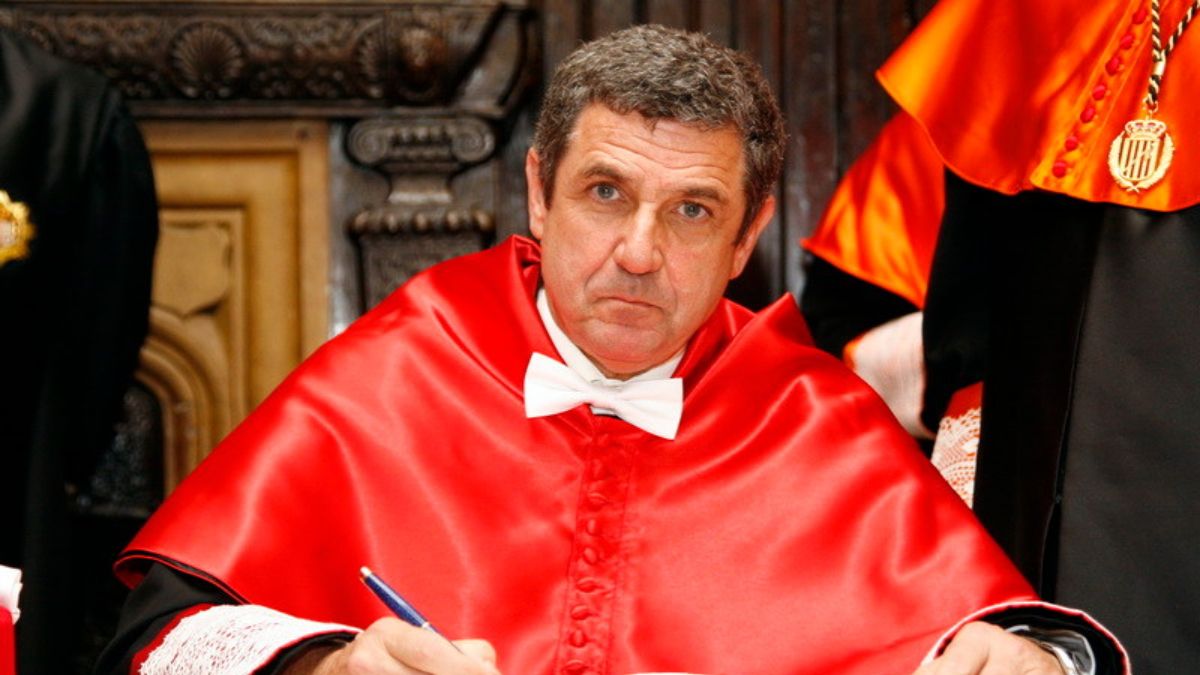The club accuse the referee of falsification of documents and corruption in sport after their controversial promotion playoff to the second division
Full article
Fermín Morales, Nàstic de Tarragona's lawyer: ‘There is evidence to prove the corruption of referee Mallo Fernández’
The judge of the Court of Instruction number 4 of Tarragona has admitted the complaint filed by Nàstic against the referee Eder Mallo Fernández, who they accuse of false documentation and corruption in sport. The basis of the complaint lies in the decisions taken during the playoff match for promotion to the second division between Nàstic and Málaga, played on 22 June 2024.
According to the Tarragona club, the referee deliberately harmed the team, making decisions that altered the result of the match. In addition, they rely on a police report that contradicts the referee's report, which, in the opinion of Nàstic, would be evidence of a possible falsification of a public document.
Fermín Morales Prats, professor of Criminal Law at the Autonomous University of Barcelona and Nàstic's lawyer, explained to this newspaper the basis of the complaint:
‘The key to the accusation of false documentation lies in the contradiction between the referee's minutes and the Mossos d'Esquadra's report. While the referee indicated that there was a ‘certain risk’ to the integrity of the refereeing team, the police report concludes the opposite. This disparity is fundamental from a legal point of view.
As for the accusation of corruption in sport, Morales Prats points out that a lot of evidence has been gathered. ‘In the complaint, we provided evidence ex ante, i.e. prior to the match, which could point to a bias in the refereeing. We have also gathered evidence during and after the match, which together allow us to infer a possible responsibility in the predetermination of the result,’ explains the Catalan club's lawyer.
Possible consequences for Mallo Fernández
If the complaint is successful and the referee's guilt is proven, the consequences could be serious. According to the lawyer, ‘Mallo Fernández faces prison sentences and disqualification, which would directly affect his professional career in refereeing. In addition, Nàstic has requested compensation for damages due to the economic damage caused by the closure of its stadium and the impossibility of promotion to the second division.
‘The club is claiming financial compensation because the sanction imposed by the Competition Committee, based on the referee's report, meant the closure of the stadium for four matches,’ Morales Prats explains. ‘In addition, Nàstic lost more than 5 million euros in television income due to the impossibility of promotion. It is clear that the refereeing decisions had a direct impact on the economic viability of the club’.

A precedent in sports justice
The case has aroused great interest because it could set a precedent in criminal law applied to football. Morales Prats confirms: ‘This is an unprecedented case in Spain. Until now, corruption cases in sport were linked to betting scandals, but here we are talking about an alleged manipulation of referees that has nothing to do with bookmakers. This is a new dimension in the prosecution of sporting corruption’.
However, the Nàstic lawyer warns that not all refereeing decisions can be prosecuted:
‘It is not about opening the door to an avalanche of lawsuits for refereeing errors. What differentiates this case from other situations in which clubs may feel they have been wronged is the existence of evidence that goes beyond a simple subjective interpretation of the refereeing. Here, it is not only a decision on the field that is at issue, but a set of circumstances that point to possible corruption’.
The judicial process and next steps
With the complaint already admitted for processing, the case enters the pre-trial phase. Next March, the first declarations of the accused referee and the witnesses proposed by Nàstic are scheduled to take place.
‘In this phase key testimonies will be collected. Depending on what is established in these statements, the investigation could be extended with new investigative evidence,’ explains Morales Prats. ‘It is difficult to determine how long the procedure will last, but if the investigation phase is completed, we would be looking at a case with very serious implications for Spanish football.
For its part, the Technical Committee of Referees (CTA) has defended Mallo Fernández, assuring that his decisions were correct and that the referee's report accurately reflects what happened in the match. They have also condemned attempts to ‘coerce and put pressure on the referee's work through lawsuits’, pointing out that they have full confidence in the referee's integrity.
Comments
Related links
Main menu












